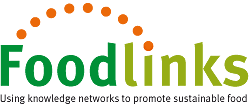Anita Selunda
Tukums municipality (Tukuma novada Dome)
Development Department
Pils ielā 18
Tukums 3101
Latvia
Tel.: +37 163 122 707
Fax: +37 163 107 243
E-Mail: ![]() anita.selunda(at)tukums.lv
anita.selunda(at)tukums.lv
Public sector food procurement and preparation in the municipality of Tukums, Latvia
The municipality of Tukums in Latvia, a partner in the Foodlinks project, is aiming at increasing the supply of healthy and environmentally-friendly produced food in public institutions.
The main public institutions involved in the procurement and supply of food in the municipality of Tukums, Latvia are educational institutions (kindergartens, schools), health care institutions (hospitals), sport’s institutions and social care institutions (children’s home, social department).
The food chain process for public institutions in the municipality is organized in two ways:
- In-house food procurement in order to prepare meals with the institutions’ own staff and;
- Outsourced food procurement and preparation to external catering services.
Public institutions in the municipality can freely choose between the two options, depending on local conditions and considerations. However, there is an increasing trend towards outsourcing.
Why? There are such arguments as:
- no investments in specialized equipment is needed;
- no costs for specialized staff (chefs, cooks etc.);
- time savings;
- no worry about food procurement;
- lower costs (not always).
All food chain processes in public institutions within the municipality are controlled by the government. All municipal institutions or organizations with public capital buy goods and services in accordance with the Public Procurement law which sets the principles and detailed rules for procurement procedures (e.g. free competition, equal and fair attitude toward tenderers, cost-effective expenditures and minimized risks etc.).
There are state rules which determine the basic principles of the food chain at every level (production, processing, distribution, selling etc.). There are special regulations for health care and educational institutions. For example, these regulations determine, according to school age, what kind of food (meat, fish, salads etc.) is offered and how frequently. There are also some restrictions (e. g. no sweetened drinks and sweets are allowed to be sold at school). In addition, the government finances wholesome food programmes which are organized in schools, like the ”school fruit” and “school milk” programmes. Under these programmes, students receive free fruit and milk.
The future aim for food chain management in the municipality of Tukums is to use more local resources and reduce the negative environmental impacts of transport. This includes more organic food, food with a reduced amount of food additives (preservatives, enhancers, stabilizers, improvers etc.), and more food with local origins.
Further information
Links
- Foodlinkscommunity.net: Tukums municipality
- PureFood.org: Anita Selunda

Contact
Anita Šēlunda Head of Development Department of Tukums municipality, Latvia, ![]() anita.selunda(at)tukums.lv
anita.selunda(at)tukums.lv
 This website was archived on November 14, 2013 and is no longer updated.
This website was archived on November 14, 2013 and is no longer updated.

